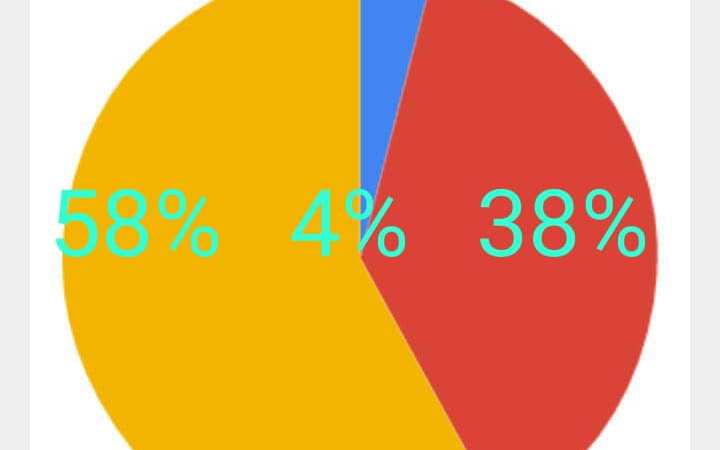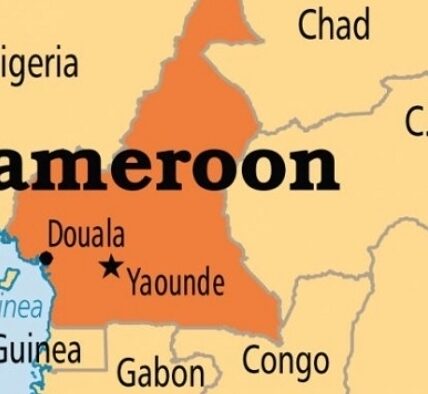INVESTIGATION: How Nigerian State Governments Poorly Interacted with Citizens via Emails During COVID-19 Pandemic, Despite ICT Advancement
This post has already been read 22324 times!
As a result of the advancement in Information and Communications Technology (ICT) and Telecommunications sectors, the manners of doing things have changed from analogue to digital, including governance and state administration processes.
In this first part, our correspondent reports how Nigerian state governments are hardly reached by citizens via official email and get responded to. The report also revealed how various state governments are left behind in terms of ICT/Telecommunications.
In the primitive period, when messages were sent via the post office, they took a long period of time before they are delivered, depending on the distance. They may spend days, weeks or even months.
Presently, with the aid of ICT and telecommunications devices, messages are sent very easily and faster, in a matter of seconds via text messages, emails, and other electronic means.
However Nigerian citizens have expressed dismay over the lackadaisical attitudes of the state governments despite the federal government efforts to diversify the economy from oil based to digital economy to provide an enabling technology driven society.
ICT and telecommunications advancements, made state administration, legislation, judicial processes to be easy as well as other humans day-to-day activities. Many countries of the world have keyed into digital policy making, implementation and digital economy. The leaders as well as the lead are close to each other digitally though physically far away.
Unfortunately, Nigerian states remained where they were despite all these advancements in the ICT sector and the national digital economy policy and strategy. The state governments seemed to be lackadaisical in terms of ICT and digital literacy.
 To attest this, this reporter sent enquiries to 24 states and contacted 11 states via e-contact forms available on their websites. Unfortunately, only one state, Nasarawa, acknowledged and replied to the email in less than five minutes and 10 hours respectively.
To attest this, this reporter sent enquiries to 24 states and contacted 11 states via e-contact forms available on their websites. Unfortunately, only one state, Nasarawa, acknowledged and replied to the email in less than five minutes and 10 hours respectively.
Email Enquiries
Between October 12 and November 9, inquiry emails and forms were sent to different state governments in Nigeria, including the federal capital territory administration (FCTA).
Only 65% of the states whose email addresses were available, were contacted via email. This showed that the country has a lot to do in terms of ICT, if still by now, some states don’t have ordinary email addresses available for the citizens who may wish to make enquiries.
These states are as follows, Gombe (info@gombestate.gov.ng), Bauchi (info@bauchistate.gov.ng), Yobe (info@yobestate.gov.ng), Kano (info@kanostate.gov.ng), Kaduna (info@kdsg.gov.ng), Kwara, (contact@kwarastate.gov.ng), Kogi (info@kogistate.gov.ng), Anambra (info@anambra.gov.ng) & (admin@anambra.gov.ng), Niger (info@nigeriastate.gov.ng), Ondo (info@ondostate.gov.ng), and Taraba (admin@tarabastate.gov.ng).
Others are Abia (info@abiastate.gov.ng), Sokoto (info@sokotostate.gov.ng), Kebbi (info@kebbistate.gov.ng), Zamfara (info@zmsg.gov.ng), Nasarawa (bict@nasarawastate.gov.ng), Oyo (info@Oyostate.gov.ng) Enugu (info@Enugustate.gov.ng), Jigawa (webmaster@jigawastate.gov.ng), Delta (admin@deltastate.gov.ng), Ogun (info@Ogunstate.gov.ng), Akwa Ibom (info@akwaibomstate.gov.ng), Lagos (info@lagosstate.gov.ng) and Edo (info@Edostate.gov.ng).
The enquiries contained a question that “has the state government approved the reopening of schools” and “is it true that the state government is requesting for covid-19 test fees from students?”
After seven days, a reminder was sent to the addresses that failed to acknowledge or respond to the enquiries sent. But despite this, these enquiries were not responded to.
Delivery Failed Notice
In a matter of seconds, shortly after sending the emails, delivery failed messages started bouncing back from the mailer daemon, informing this reporter that delivery had failed to the recipients.
Up to 38% of the states emailed, that is 9 states ‘did not either exist or they are full as messages bounced back.’
“Sorry, we were unable to deliver your message to the following address. The email account that you tried to reach does not exist.” most of the failure notice stated.
“No Such User Here” Yobe state email bounced back.
Also, Anambra state email bounced back, “Unable to deliver message after multiple retries, giving up.”
The same with Ondo state “Recipient address rejected”
Not only them, Niger state also said “No mx record found for domain=nigeriastate.gov.ng”
The states government whose addresses cannot be reached by email include the following: Oyo (info@oyostate.gov.ng), Yobe (info@yobestate.gov.ng), Ondo (info@ondostate.gov.ng), Niger (info@nigeriastate.gov.ng), Anambra (info@anambra.gov.ng) & (admin@anambra.gov.ng), and Zamfara states (info@zmsg.gov.ng).
Similarly, for Edo and Abia states, seemingly to be undeliverable email attachments were received from (postmaster@edostate.gov.ng) and (postmaster@abiastate.gov.ng) which refused to be opened on WPS, Google Doc, and PDF drive.
Only Anambra state have another email to be contacted through, but the rest have only one which failed.
Only Nasarawa State Replied, Out of the States Contacted
About 58%, making up to 15 states recipients, failed to acknowledge nor reply to the enquiries regardless of sending another email to them as a reminder to those addresses after one week.
Except for Kaduna state, which a seemingly undeliverable email attachment was received from (postmaster@kdsg.gov.ng), but all efforts to open it using WPS, Google doc and PDF drive failed.
Amongst the 24 states emailed, 9 were not reached. Out of the ones delivered, only one state (four-percent) replied.
While out of the 36 states of the federation and the FCT, only three-percent respond to email enquiries sent by this reporter.
The first and only state that sent an acknowledgement was Nasarawa state government, a north central state of Nigeria, out of the 24 states emailed.
In less than five minutes after sending the emails, a reply came in from Nasarawa state government acknowledging the receipt of the email.
“Thank you for taking your time to contact us.” the email displayed. “Your Message has been received and will be treated accordingly. Thank you once again.” Nasarawa state government replied.
Nasarawa is not just the only state that acknowledged the receipt but also, the only state that responded to this inquiry, at 19:08, nearly 10 hours after sending the email,
“Good day Sir,” the message stated. “Schools have opened, no one is requesting for covid 19 test, but measures are in place at all schools to protect the students, teachers and parents.”
Eight States And FCT Don’t Have Email
Out of the 36 states and the federal capital territory administration (FCTA), observed in this report, eight states and the FCT (24%) don’t have official email addresses available on their websites for public use.
These include Osun (www.osun.gov.ng), Benue (www.benue.gov.ng), Ebonyi (ebonyistate.gov.ng), FCTA (fcta.gov.ng), Ekiti (ekitistate.gov.ng), Plateau (plateaustate.gov.ng), Imo (imostate.gov.ng), Rivers (riversstate.gov.ng), and Katsina states (www.katsinastate.gov.ng).
While 14 (41%) of the states and FCT are having contact forms available.
These are Benue (benuestate.gov.ng), Ekiti (ekitistate.gov.ng), Rivers (riversstate.gov.ng), Ogun (Ogunstate.gov.ng), Jigawa (jigawastate.gov.ng), Plateau (plateaustate.gov.ng), Enugu (enugustate.gov.ng) and Imo (imostate.gov.ng).
Others include, Kogi (kogistate.gov.ng), Kwara (kwarastate.gov.ng), Niger (Nigerstate.gov.ng), Bauchi (bauchistate.gov.ng), Kano (kanostate.gov.ng), Zamfara states (zmsg.gov.ng), and FCTA (fcta.gov.ng) have contact forms on their sites through which they were contacted.
No Reply From All Contact Forms Submitted
Contact forms were filled and submitted on the various state governments’ websites.
No single state, including the federal capital territory administration (FCTA), either acknowledged or replied in respect of the inquiry. Despite the promises made by some websites to reply as soon as possible.
“Thank you for your feedback. Necessary action(s) will be taken.” Ogun state website displayed after submission.
“Thank you for your message. It has been sent.” The respective Kogi and Ekiti states websites notified.
“Your message has been sent.” Kano state website showed.
The Benue state government website displayed “Your message was sent successfully.”
Not only them, Akwa ibom state promised to respond within the shortest time frame of 24 hours but no response more than a week after.
“We’re happy receive your message, we’ll reply you within 24 hours,” Akwa Ibom state website stated Even the English used was wrong.
Contact Forms ‘Submission Failed’
Attempts to submit the forms on Enugu state (enugustate.gov.ng), and Zamfara state (zmsg.gov.ng) websites failed, thereby stating, “There was a problem submitting your message. Please try again.”
“419 | page expired,” Rivers state website displayed when our correspondent attempted submitting an inquiry.
For Bauchi state, the notification said “there was an error trying to send your message. Please try again later.”
Similarly, Jigawa state contact form on its website failed to be submitted.
These five states were not reachable. They made up to 33% out of the 14 states and the FCT contacted via forms.
Three States Don’t Have Websites
In the meantime, despite the ICT and Technological Advancements in the world, and the new digital economy and strategy policy, under president Muhammadu Buhari’s administration, up to eight-percent of the Nigerian state governments don’t even have websites.
These states include the following Adamawa, Bayelsa, and Cross River states.
Borno state government website (www.bornostate.gov.ng), when visited by this reporter severally, the website is said to be undergoing maintenance.
This newspaper has noted that Borno (three-percent of the Nigerian state governments websites), has been down for several weeks.
“The site is under maintenance” the notice showed on the site.
ICT- Friendly-State-Governments
As a result of the advancement in the ICT and Telecommunications industry, every country around the world today is fastly turning to a digital society with a digital economy, regardless of the past when things are done manually.
This may not be unconnected with why, when covid-19 was ravaging the world, it did not stop some activities completely as they were swiftly changed to virtual. These can include learning, governance, judicial processes, amongst others.
However, in Nigeria, citizens are locked down with no alternatives to work and learn, completely and freely from home due to so many challenges which lack of digital literacy and not giving ICT priority fall in.
This report has shown that many of the Nigerian state governments do not interact with the citizens electronically either via email or contact forms.
Only three-percent (one) of the state governments interacts with citizens online to make communications easier.
Amongst the 24 states emailed, 9 were not reached. Out of the ones delivered, only one state (four-percent) replied.
ICT Consultant Reacts
Umar Saleh Gwani, an ICT consultant, founder/CEO, NextOne Information and Communications Technologies Nigeria Limited, when contacted by Abuja Business Reports to comment on the bouncing emails said “it means even if the domains exist, they do not have email services enabled.”
“If you notice the address that bounced, they don’t contain ‘state’ in them. If you noticed the one that is delivered is abiastate.gov.ng. Bauchi is https://www.bauchistate.gov.ng as the url so you can have email as info@bauchistate.gov.ng etc.”
He however added that “Since most of the errors are from the mailer daemon, it is also possible the mailboxes are full.”
He expressed dismay over how so many states in Nigeria are lagging far behind in terms of ICT strategies thereby making civil servants not digitally literate.
“State governments with the exception of Lagos and Kaduna states are lagging behind in the ICT strategies thus there is room for a lot of improvement. They still use free emails like gmail and yahoo to conduct official business and most of the websites are easy to hijack by hackers.”
“For instance state governments have not made any serious efforts in investing in digital literacy so there is a huge capacity gap with respect to civil servants on the adoption of new technologies.”
According to Mr. Saleh, the cause of these problems are lack of professionalism of the designers and lack of quality assurance and strategic thinking and communication.
“Most of these websites were designed by inexperienced users who normally choose a web development framework called wordpress because it is easy to use and is developed using the javascript programming languages but at present it is one of the web development frameworks that has a lot of security issues and vulnerabilities.”
“So in short the cause of all the problems you have observed are all related to lack of quality assurance, strategic thinking and communication in handling of state based ICT projects.
Citizens Cried Out
Various residents of distinct states when asked whether they have ever reached out to their state governments via email address responded in the negative.
“No….. I am not even sure whether the Adamawa state government has an official email,” Emme Emmanuel, a resident of Adamawa State said.
“I don’t think that our state government has an official email address and website,” he added.
“The truth is that the level of our exposure here is nothing to write home about.”
Cletus Asuquo, a resident of Cross River state, said he has never come across the website or email of Cross River state government, not to even talk of reaching out to them.
“No I have not. Never came across that.” said Asuquo.
He further said that it will be a surprise for him if his state doesn’t have a website. He however added that reaching the state government is very difficult then.
For Mohammed Aliyu Baba, a resident of Niger state, he is aware of his state government website but not including email. He said contacting Niger state government is not an easy thing.
“Frankly, the protocols are exhausting. Sometimes, to even reach out to the local government that’s closest to the people takes extra effort and the will of God.” he said.
“Seriously, the government is not available especially to the common man.”
Others interviewed in Katsina and Niger states said they can contact the state governments through some special contacts on some specific issues.
Some State Governments Are Not Reachable
Further attempts to hear from the state governments via phone call on why they failed to respond, revealed that not only that the state governments email addresses are dormant but also unreachable via phone call.
Kano State government, when contacted through the phone number of the state Ministry of Information, Youth and Sports (07044930000), which was displayed on the state government website, it was neither the information officer of the ministry nor a representative of the ministry that answered the call.
“It is not him (information officer).” he said in hausa language.
Again, he replied “It is not him (representative of the ministry of information).”
On the other side, Gombe State government website displayed a contact number (080-324-5468) but was incomplete, thereby not reachable. Only 10 digits were available instead of 11.
Similarly, the contacts of Bauchi state governor’s special assistant and special adviser on media and communications displayed on the state official website was (+234 (0) 101 0000 000) and could not be reached.
This is the first part in the series of COVID-19 ICT investigations in Nigeria. Abuja Business Reports will serve you with more investigative reports.







